How the border closure in March cut off the only 19-year-old in Hyder, Alaska, from his friends
One of just three teenagers in a tiny Alaskan town abutting northwest British Columbia says he's feeling sad and isolated after almost five months of a border closure that's kept him apart from his friends, who live just kilometres away in Canada.
"I feel cut off. It's pretty lonely now. I'm getting to the edge of depression," said Ronnie Olynyk, who recently turned 19.
Olynyk lives in Hyder, Alaska, population 63. He's the only youth of his age in the village.
His friends live in Stewart, B.C., just across the international border they used to cross freely with only a piece of ID. It's also the only route out of Hyder by land.
"I'm pretty used to always going there for a sleepover or to go have a fire. It's pretty difficult not to be able to hang out with my friends anymore," said Olynyk, who has graduated from high school.
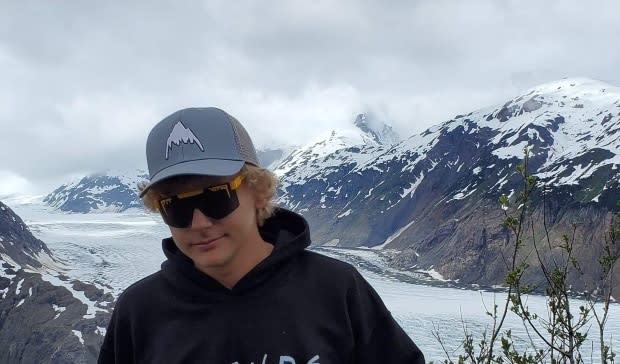
"I spent most of my time in Stewart hanging out with all the kids that are my age and they'd come over here and I'd go there," he said. "We'd dirt-bike or Ski-Doo.
"It feels secluded. I can leave my house, but I can't leave the town."
The U.S.-Canada border was closed to all but essential travel on March 21 due to the COVID-19 pandemic. It's scheduled to remain closed until Aug. 21, but as the number of cases of the disease surge across the U.S., many believe cross-border travel will be restricted for longer.
That's frustrating for local leaders in Hyder and Stewart, who say there have been no confirmed COVID-19 cases in the area.
The people in Hyder "have essentially been stuck over there," Stewart Mayor Gina McKay said. "When the [border] restrictions went into place, nobody thought that four-plus months later, here we would be with the same restrictions."
Twin communities
Hyder and Stewart have been closely knit for years. Locals travelled back and forth across the border — sometimes several times a day — to shop, bank, go to school, attend church, visit friends and family, access cell service or gather firewood. High school students could attend class in either community, depending on class size in a given year.
"That border really has been, it's always been, more of a technicality," said Carly Ackerman, who lives in Stewart, owns property in Hyder and holds dual citizenship.
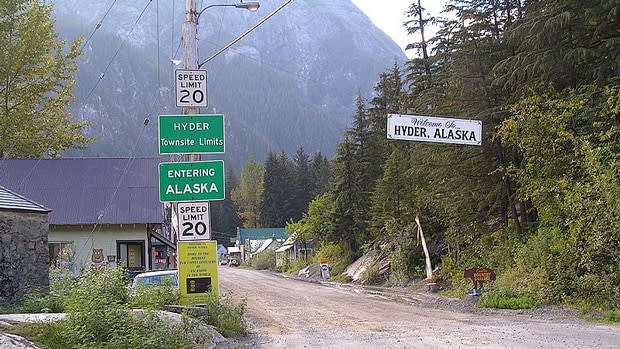
Before COVID-19, summer tourists flocked to these twin communities to see glaciers and bears, get "Hyderized" — a local drinking ritual that involves downing a shot of 150-proof liquor — and enjoy the rugged scenery of the remote coastal valley, which is shadowed by towering mountains.
Surrounded by wilderness, the only way in or out of Hyder by land is the road that crosses the border into Stewart.
Stewart, in turn, is connected to the rest of B.C. by a stretch of highway built beneath 72 avalanche chutes.
These are the kinds of challenges that pulled American and Canadian neighbours together and blurred the international boundary, say local leaders.
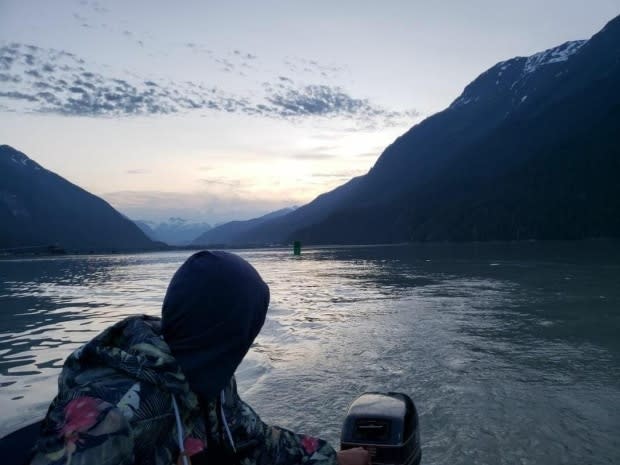
But the pandemic has changed all of that.
Now, Olynyk is allowed to cross over to Stewart — which had a population of 401 in 2016 — just once a week for three hours as the designated shopper for his family, following rules set by the Canadian government.
He can shop, bank or buy gas. But Olynyk said he's not allowed to visit his Canadian friends or socialize.
"Crossing the border for goods such as medication, groceries and other necessary goods has to be the only practical/realistic option for it to be considered a non-discretionary [essential] reason for travel," the Canada Border Services Agency said in an email to CBC News.
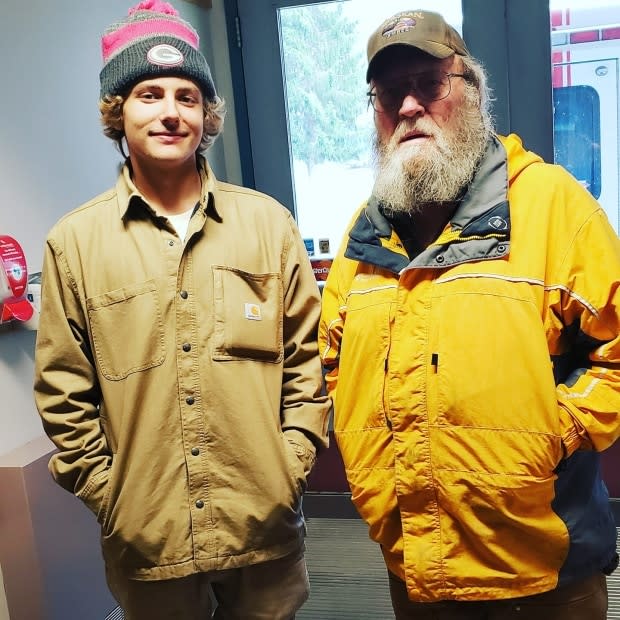
Push for cross-border 'bubble'
McKay and Ackerman are among those behind a new push to reopen the border for locals.
They're lobbying federal Minister of Public Safety and Emergency Preparedness Bill Blair, along with officials in Alaska, B.C. and Washington, D.C., to allow Hyder and Stewart to form a cross-border "bubble."
"We are two communities, two countries, but we are essentially one. We always have been. We take care of each other," McKay said.
Olynyk said he'd love to see the border rules relaxed.
"Open the border to locals," he said. "There's no COVID here."
He said he believes border policies are being decided based on infection rates in the continental U.S., far from the Alaskan Panhandle, so he's trying not to get his hopes up.
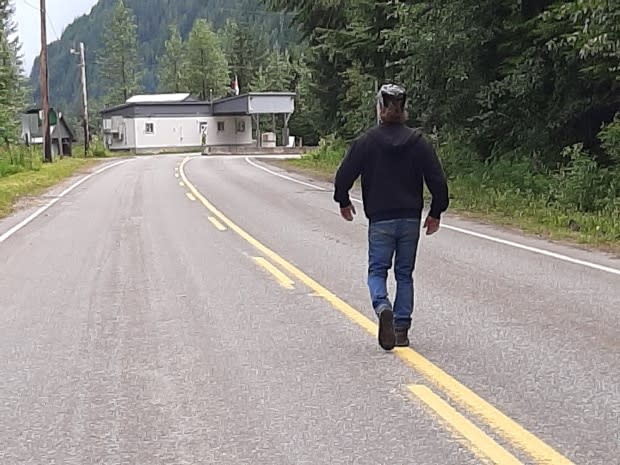
The teen said when he crosses the border each week, he asks the Canadian border officers if there's any news on reopening.
"And they say, 'We won't know anything till you do," Olynyk said.

